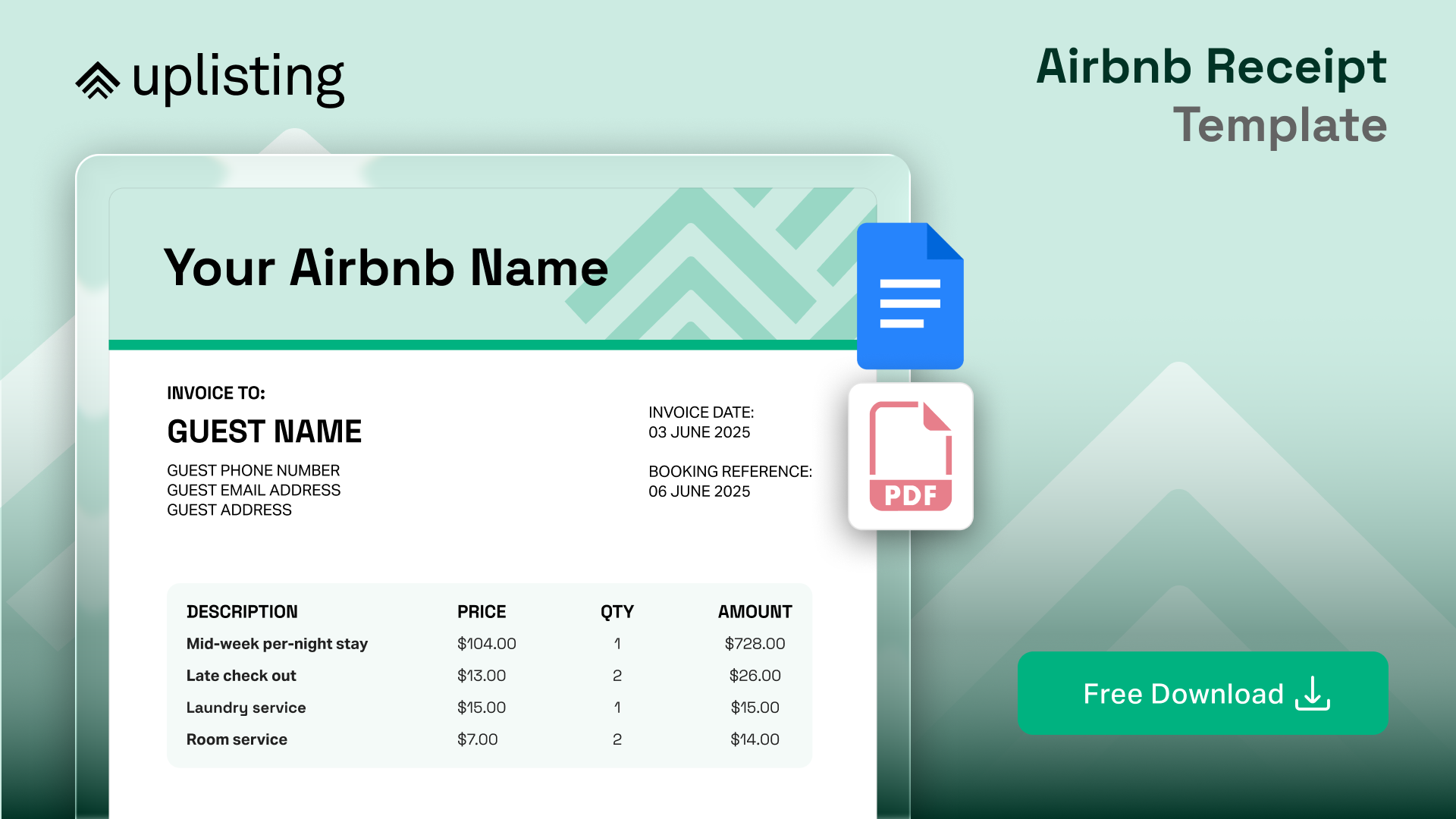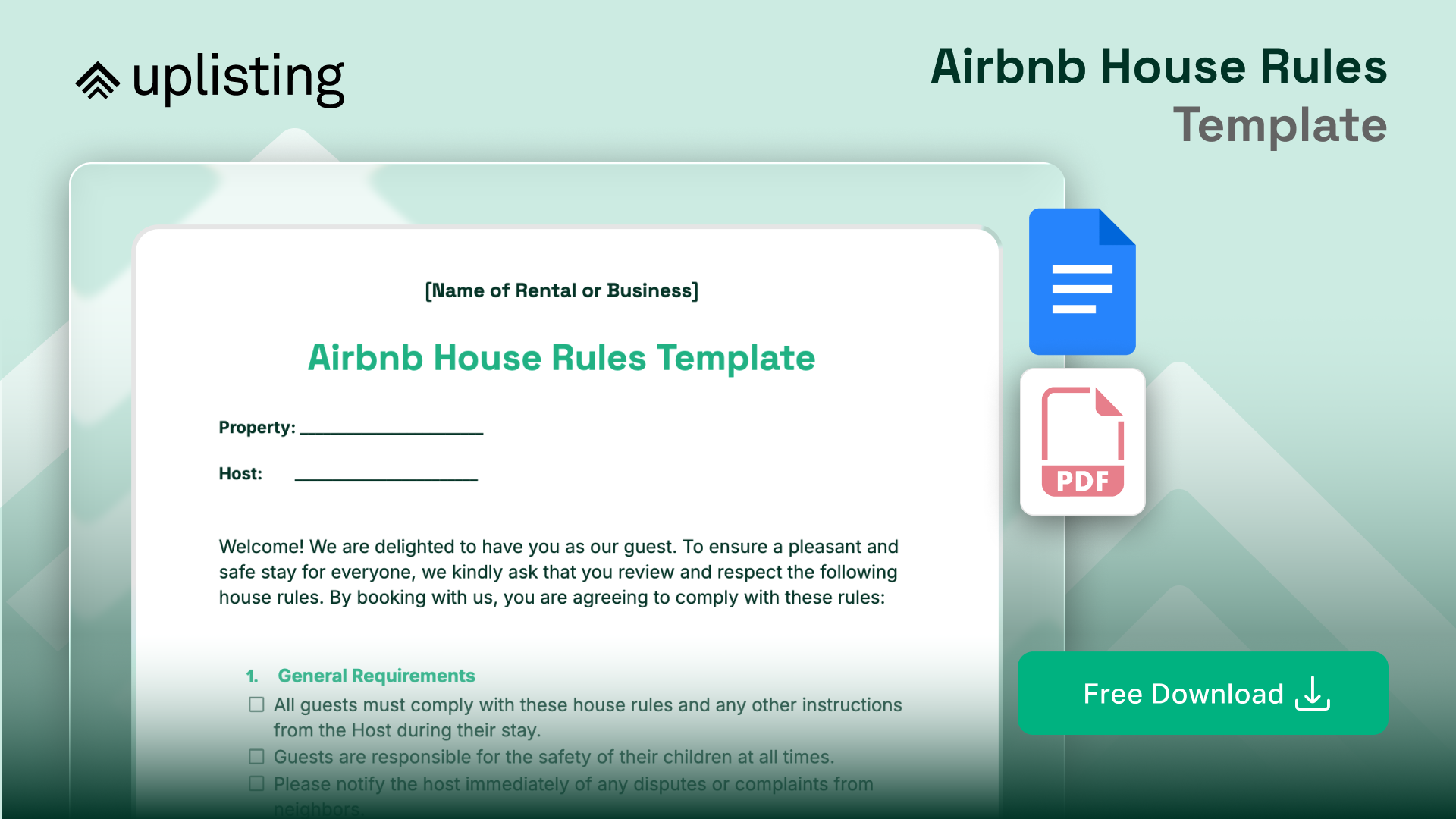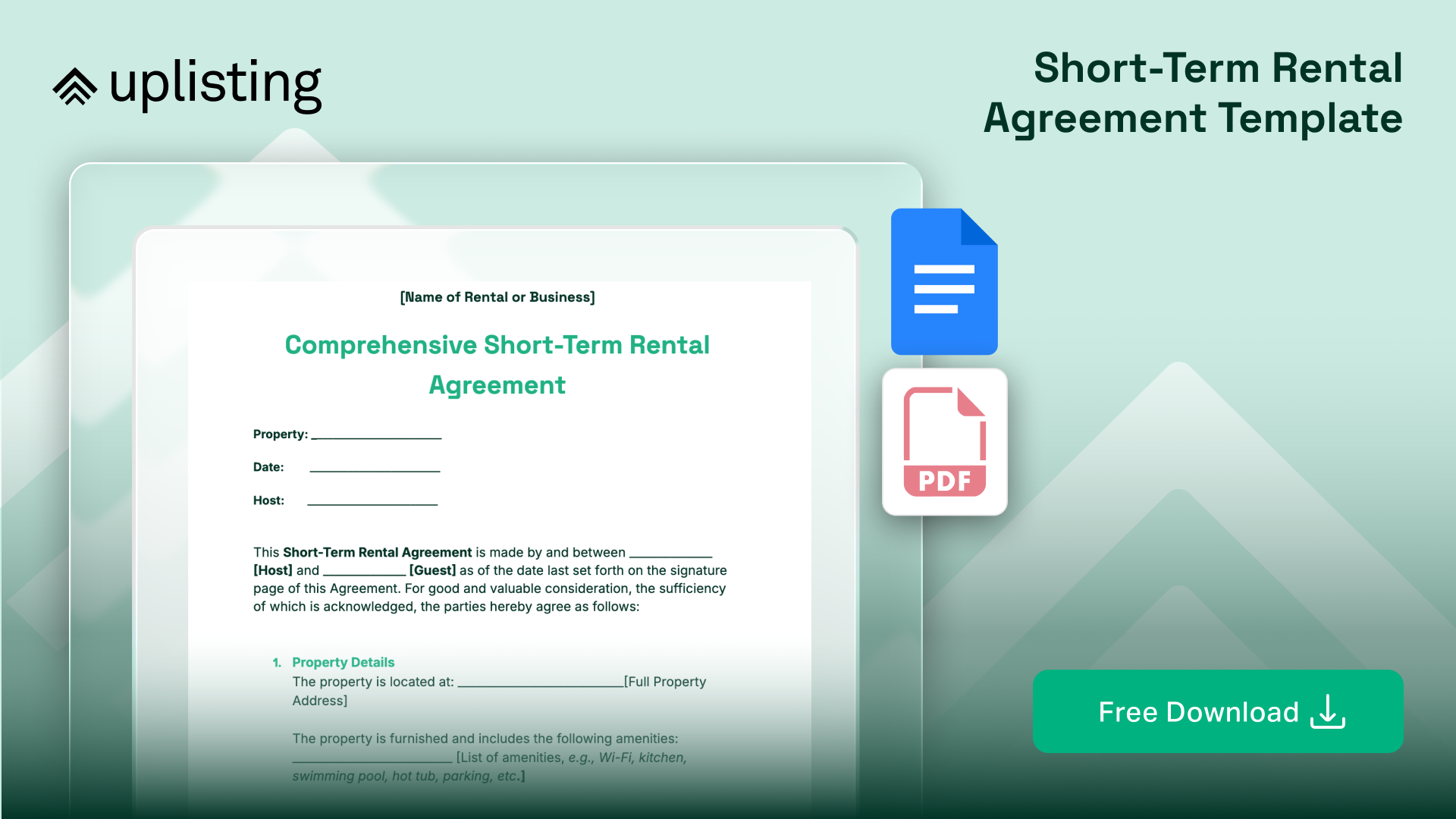Key Takeaways
Many hosts rely solely on platforms like Airbnb, but long-term growth requires more direct, proactive marketing.
Underrated strategies like email marketing, SEO, and local partnerships drive repeat bookings and build brand recognition.
These approaches don’t require a massive budget, they only need consistency and the right tools.
Bookings are getting harder to win. More listings hit the market every day, and relying on short term rental platforms alone won’t cut it anymore, especially when you’re managing six or more properties and trying to scale. You need marketing strategies for vacation rentals that build your brand, attract repeat guests, and give you more control over your revenue.
In this blog, we’ll look at three underused vacation rental marketing strategies that are easy to overlook—but worth the effort. They’re designed for operators who want to build stronger guest relationships, improve the visibility of their properties outside the platforms, and run more stable, scalable businesses over time.
Why It Pays to Think Beyond Airbnb
Airbnb and Vrbo do a solid job filling calendars, but they’re built to serve their own priorities. Every booking comes with a cut, a set of rules, and limited access to guest information. You get visibility, but not real control. When you’re managing multiple listings, missing out on direct guest relationships eats into margins fast.
Return bookings are cheaper to land, smoother to manage, and far less likely to result in issues. They also help you build a stronger foundation for your business, one that isn’t entirely dependent on third-party algorithms or shifting platform rules. When you start to think like a brand instead of a listing, you gain more control over your pricing, your guest experience, and your long-term profitability.
That's why the better play is to treat booking platforms as a starting point, not the whole plan. Guests who’ve already stayed once are much easier to bring back, but only if they know how. A direct booking site, automated email follow-ups, and offers tailored to past stays give returning guests a reason to skip the platform fees and book with you directly, and marketing strategies for vacation rentals help you spread the word.
Let's take a look at three underrated strategies that the biggest hosts use to keep their guests coming back.
Save yourself from your inbox
Automate with Uplisting
Automated guest messages keep your guest informed from booking through to check-out. They’re designed to answer questions before they arise, saving you time whilst keeping your guests happy.
1. Email Marketing That Builds Guest Relationships
Email works best when it’s used to continue a conversation, not to sell something out of the blue.
It’s one of the few channels where you can speak directly to past guests without relying on a third party. However, for it to work, you need to approach it as part of the guest experience, not just another marketing box to tick.
Make it easy to collect emails at every touchpoint
You can’t build any kind of follow-up without guest contact details. For direct bookings, make sure your site captures email addresses during checkout. For platform bookings, think about passive ways to collect emails that fit naturally into the stay, like post-checkout surveys or Wi-Fi logins that don’t feel intrusive.
The earlier you capture an email, the sooner you can start setting expectations, reinforcing your brand, and offering something useful. Without it, you’re starting from zero every time.
Focus on content with a clear purpose
Not every guest wants a discount code. But many will appreciate useful details about the destination, early access to new listings, or local tips that help them plan better next time.
Send emails that are timely, specific, and easy to act on. A short note before a local event they might be interested in. A seasonal update about changes to your property or area. A recommendation based on where they stayed last time.
Use automation sparingly, but use it well
You don’t need to send every email manually but automation should never feel robotic. Set up a few key emails tied to natural points in the guest journey: One before arrival with local tips, one after checkout asking for feedback, and one a few months later that reconnects them with something relevant.
Avoid “set it and forget it” templates. Instead, reference details from their previous stay, like the property name or a nearby attraction, to make the message feel familiar. Automation is helpful when it frees up your time without stripping away the personal tone guests remember.

2. Local Partnerships That Drive Bookings
Guests don’t just always book a short-term rental for the property, they often book for where it’s located. If the booking platform is doing all the heavy lifting, you’re missing easy wins hiding right outside your door.
Collaborate with local businesses
Start with nearby spots that guests already ask about: coffee shops, restaurants, spas, tour guides. Create two-way referral deals. You offer discounts or vouchers through your guest guide or confirmation emails. In return, businesses refer travelers who need a place to stay.
Feature a few hand-picked favorites with clear perks, like “Stay two nights, get 10% off dinner at Marlowe’s” or “Mention your booking and skip the line at Beachside Paddle Tours.” Offers like these make your listing stand out from the dozens next door.
Local partners also help fill gaps. No breakfast service? Connect with a nearby bakery for morning delivery. No airport pickup? Partner with a driver who knows your check-in times. Simple fixes like these improve guest reviews without raising your overhead.
Add value to your guest experience
Guests want to feel like locals without doing the homework. Instead of handing them a binder full of menus, send curated digital guides before arrival. Include restaurant picks, walking routes, and short descriptions with your personal notes. Add direct links or promo codes so guests can book right away.
Use pre-arrival emails or check-in messages to share recommendations in a way that feels natural. “If you’re getting in before dinner, we always send guests to Rosie’s for the grilled trout, it’s 5 minutes away, and they’ll give you 15% off.”
Even small things like mentioning which local tour company actually shows up on time (or which brewery has a dog-friendly patio) make a difference. Guests remember the extra thought, leave better reviews, and are more likely to come back.
Build your reputation in the community
Local partnerships make your name travel further. A restaurant owner who sees your guests every weekend is more likely to recommend your place to others. A florist or event planner might send wedding parties your way.
You’ll also start showing up on more local websites. Tour companies and restaurants often list their partners, and those backlinks help your direct booking site rank higher in search results. That matters when you want to pull traffic away from online platforms.
Enjoy the confidence & focus you need to scale your vacation rental business
Book more while doing less
With a reliable VRM solution you can trust, Uplisting can help you grow your business without wasting time on double bookings, unhappy guests, upset clients and worrying what could go wrong next.
3. Search Engine Optimization (SEO) for Your Direct Booking Site
Plenty of guests already know what kind of property they want, they just need to find it.
If your site doesn’t show up in search results when they’re looking, someone else gets the booking. That’s where SEO comes into play.
Target the right keywords
Trying to rank for broad terms like “vacation rental” or “beach house” gets you nowhere. Bigger sites already dominate those searches. Instead, focus on long-tail keywords that match exactly what your property offers, like “pet-friendly cabin in Asheville” or “family vacation rental near Lake Tahoe.” These phrases bring in guests who are ready to book.
Start with what people ask before they book. If guests consistently care about walkability, hot tubs, or dog-friendly patios, use that language in your content. Search volume tools help, but real feedback from guests matters more. Use the exact phrases guests type into search bars, not what sounds good in a brochure.
Each listing should center around one or two highly targeted phrases. Include them naturally in the title, intro, description, and photo captions. Don’t force keywords into every sentence, write like someone who actually knows the property.
Optimize pages and blog content
Search engines scan your site for structure, clarity, and relevance. Pages without headings, meta descriptions, or alt text make it harder for search engines to understand what your site is about.
Use clear, simple headers to break up information. Add alt text that describes what’s actually in each photo, “kitchen with stainless steel appliances” beats “image1234.jpg” every time. Write meta descriptions that explain what guests will find on the page in 160 characters or less. This is what shows up in search results, so make it count.
Earn backlinks and build authority
Search engines use backlinks to judge if a site is trustworthy. When other respected sites link to yours, it signals that your content is worth showing.
Start with the tourism board, local event calendars, or small business directories. These usually offer free or low-cost listings and often include a link back to your site. Reach out to travel bloggers who cover your area and offer a stay or a discount in exchange for a mention. Many already have loyal readers looking for places to book.
Local collaborations also help. If a nearby tour company recommends your property on their booking page, that’s a backlink with real value. It builds both traffic and trust. Over time, these links help your site climb in search rankings without you paying for ads.
Scale Your Business With The Right Tools
Building sustainable growth in short-term rentals means stepping beyond booking platforms and investing in strategies that build your brand and drive repeat business. Email marketing, local partnerships, and SEO are often overlooked, but they consistently deliver high returns with relatively low effort. These tools help you connect directly with guests, improve visibility, and strengthen your reputation in the markets you serve.
By focusing on guest value, local engagement, and search visibility, you create a system that brings in bookings, even when algorithms change or competition heats up.
Ready to turn marketing into a competitive advantage? Sign up for Uplisting to streamline your vacation rental management. Build smarter systems, automate the busywork, and scale your business with confidence.
So automatic, you won’t know what to do with yourself
Put my rentals on autopilot
It’s simple to automate repetitive tasks with Uplisting's short-term rental software. You’ll save hours every week and eliminate human error. Go ahead — take some time off.
FAQs About Marketing Vacation Rentals
What’s the easiest marketing strategy to start with?
Start with email marketing. It’s quick to set up, doesn’t cost much, and works well for bringing past guests back. A few automated messages can keep your brand top of mind and fill gaps in the calendar without chasing new leads.
How do I track if these strategies are working?
Look at where bookings come from and how guests interact with your content. Google Analytics shows which pages drive traffic and which ones lead to bookings. Email platforms track open and click rates, so you can see what people actually care about.
Vacation rental software with reporting tools adds another layer, because repeat bookings, revenue by source, and conversion rates across properties tell a clearer story than your gut instinct ever could.
Do I need a website to use SEO or email marketing?
Yes. Without a direct booking site, there’s nowhere to send search traffic or email clicks. A standalone site gives you full control over messaging and keeps guest data in your hands, not locked inside a booking platform. Every marketing effort benefits from having one place where guests can learn about your properties and book directly.
How soon will I see results?
Email campaigns often pick up traction fast, especially with past guests who already know what to expect. SEO takes longer to build momentum but sticks around once it starts working. Unlike paid ads that disappear once the budget runs out, both channels keep delivering over time.


















.png)

